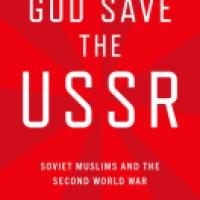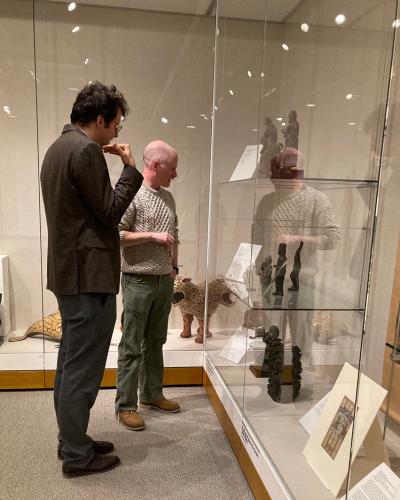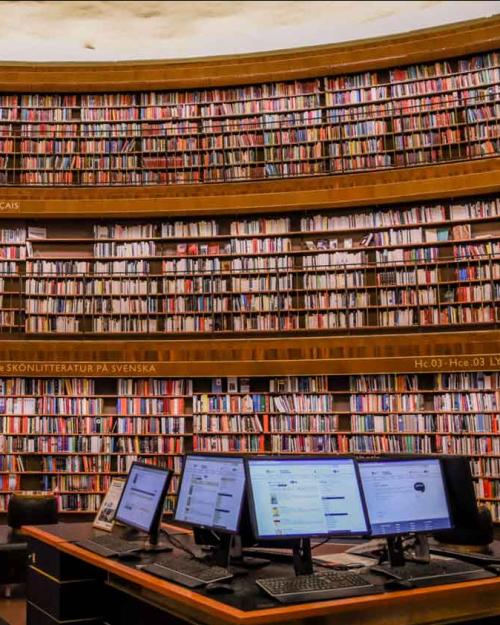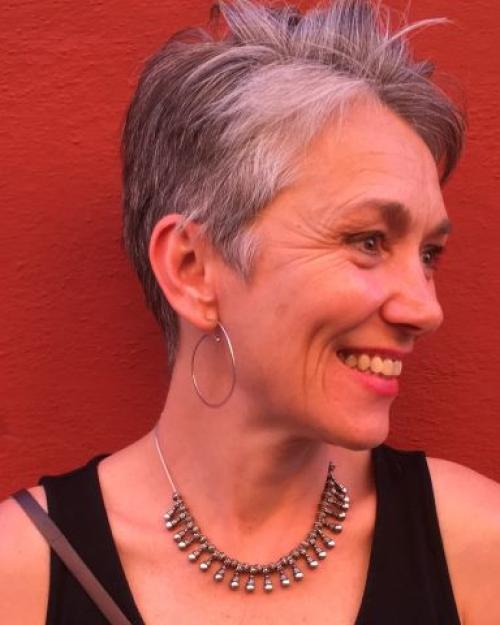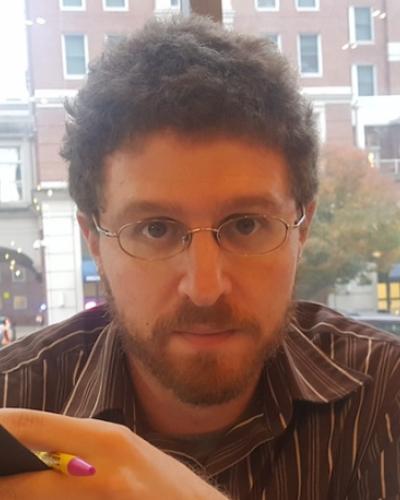This iteration of the Fellows' Q&A series features Jeff Eden, assistant professor of history at St. Mary's College of Maryland and 2017-18 Mellon Postdoctoral Fellow in Asian Studies. His new book, God Save the USSR: Soviet Muslims and the Second World War, was just released on April 1, 2021 form Oxford University Press.
Big Picture
How did religion survive in the militantly atheist Soviet Union? What forms did it take? What do we know about it, and how? More generally: Can an authoritarian state destroy religion? These are the questions driving God Save the USSR. They are high-stakes questions as we consider, for example, the present-day Uyghur crisis in Xinjiang, which involves a state-sponsored assault on religious life with striking similarities to the Soviet assault of the 1920s-30s.
GodSavetheUSSRImage.jpg
Alt Text
God Save the USSR coverAs an American who takes freedom of religion for granted, the moral questions involved in the state-sponsored “destruction” of religion are simple. The conceptual and logistical questions, however—if and how a state can destroy religion—are more challenging, and they have rarely been addressed by academics. Here, Soviet history serves as an astonishing case study. Religious life in all of its dimensions (social, cultural, ritual, faith-based) did indeed survive the brutal repressions of the Stalin years, and the cataclysm of the Second World War is at the heart of that story.
It is a truly strange story, and it revolves around a counterintuitive twist in the history of Soviet militant atheism. During the war, while Stalin was desperate to shore up support and raise morale for the fight against the Nazis, Soviet atheism ceased to be militant. The war years served as a turning point at which Stalin forged an awkward but enduring alliance with religious leaders across the Soviet Union, some of whom were newly freed from the Gulag.
God Save the USSR is the first book about the Soviet Muslim experience during these pivotal years, showing how they responded to the perceived “tolerance” of religion in the war era.
In Particular
The history of Soviet Muslim communities is rarely written using Soviet Muslim sources—let alone openly devotional, religiously-themed sources, which are thought to be especially scarce when it comes to the Stalin era. I came upon some astonishing samples of Soviet Muslim literature in the course of researching this book, some of which was produced privately and some of which was produced for propaganda purposes. Soviet Islamic propaganda, blending Muslim devotional themes with Stalinist patriotic tropes, is surely one of the most bizarre literary genres of the twentieth century, and in the next section I’ll describe how I first encountered it. Here I’ll simply mention another type of Soviet Muslim source: the wartime poetry produced privately by Muslim Red Army soldiers and their loved ones. This kind of Soviet Muslim literature was practically unknown outside the region until recent years, but so much of it has now emerged from the archives that my friend Allen J. Frank, the great Central Asia historian and linguist, has a forthcoming book based entirely on Kazakh Muslim wartime poetry! Just when we thought there were no new stories to tell about the Second World War…
God Save the USSR uses these and other Soviet Muslim sources to revise popular notions about the triumph of Soviet atheism; to reveal the war’s role in the development of a “Soviet Muslim” identity; and to show the causes and effects of a wartime religious revival that changed the course of Soviet cultural history.
Discovery
The surprise that launched this research came in a silent, wood-paneled reading room at the lovely Kazakh Academy of Sciences in Almaty. There, I first discovered the story of a “Soviet jihad” against Hitler and inadvertently gasped. What I found, specifically, was a document in Arabic-script Uzbek in which a Central Asian Muslim leader calls upon his coreligionists to join the Soviet Red Army and wage ghazat (holy war) and jihad (his exact words) on the invading Nazis. He describes fallen Soviet Muslim soldiers as martyrs, using the classical Arabic language of Islamic warfare.
At the time, I knew little about religion in the Soviet Union, and—like many Americans, academic and non-academic alike—I assumed that there had been very little of it. The little I did know tended to support this conclusion: I knew, for example, that Stalin had waged a brutal war on religious communities, as thousands upon thousands of priests, imams, rabbis, and ordinary believers were hauled off to the Gulag or executed in the 1930s. If religious life survived such conditions, I assumed, it could only have been in secret—the secret of basement churches or the secret of private, inward belief.
During the war, Stalin ended the state’s decades-long, militant persecution of religion, as he sought to forge alliances with religious elites and rally believers to the war effort. This, however, was just the beginning of the story.
In other words, I knew nothing of the astonishing reversal that took place during the Second World War. During the war, Stalin ended the state’s decades-long, militant persecution of religion, as he sought to forge alliances with religious elites and rally believers to the war effort. This, however, was just the beginning of the story. How did religious communities react to this sudden, bizarre reversal? Did they embrace the religious elites who, it might seem, had made a deal with the devil by working “for” Stalin? What did these elites hope to achieve by taking up this delicate position between Stalin and the people—and did they achieve it? These are some of the questions that naturally followed the chance discovery in Almaty, and I attempt an answer to each of these questions in God Save the USSR.
Fellowship
Teaching is the best inspiration, and sharing the classroom with wonderful Cornell students bolstered this project in every way. During the Fellowship, I taught two classes on Central Asia in the Department of Asian Studies. As I began work on God Save the USSR, Cornell students were generally the first to hear my latest notions, pet theories, and amateur comedy efforts. Their insights and reactions helped guide me toward the most promising stuff—the ideas that might interest educated, insightful audiences outside the circle of historians of religion in the Soviet Union (a crowd I adore—but one that could fit in a single marshrutka bus with seats to spare).
My next inspiration at Cornell was the Brett de Bary Interdisciplinary Writing Group—an uncommonly delightful biweekly workshop (and dining club) I shared with Benjamin Anderson, Raashid Goyal, Patrick Naeve, David Powers, Danielle Reid, and Aaron Rock-Singer. This wonderful group was the first to endure draft-chapters from God Save the USSR. They indulged these with grace and enhanced each with insightful recommendations. I have these comrades to thank for the fact that I remember Ithaca as a place filled with happy camaraderie, generous insights, and kinship in the dogged pursuit of weird histories.
My third inspiration almost goes without saying: the Ithaca region’s haunting beauty was a deep, calming note. When I think of the university, I think of students stretched out in the grass behind the library in October, trying to corral for Instagram the outrageous spectacle of sunset over upstate hills in peak color.

